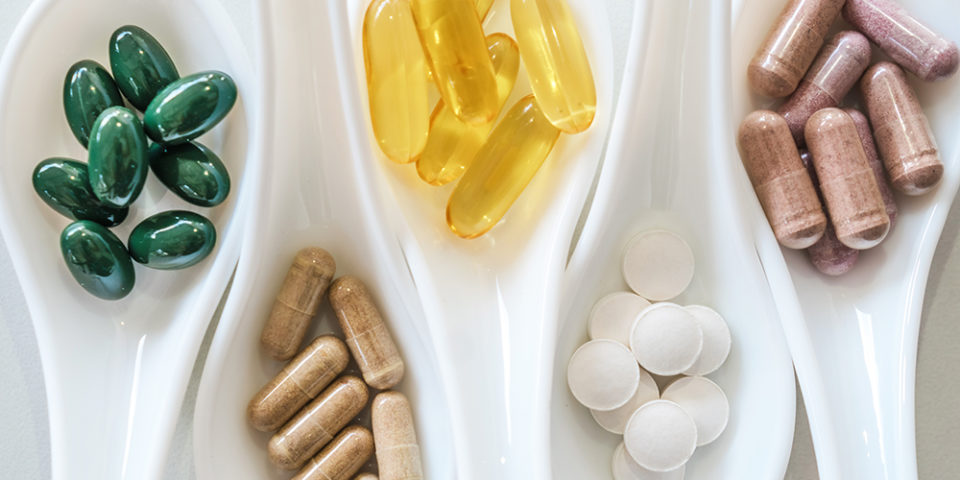What athletes need to know about dietary supplements
Athletes typically seek to gain muscle, recover quickly and improve performance. Because of this, the lure of dietary supplements can be strong. Lisa Money, RDN, explained why you’re better off resisting that temptation.
“Most athletes consume adequate nutrients on a balanced diet, so it’s best not to risk contaminated products that put your eligibility at risk. Dietary supplements are not food, so they are not inspected by the Food and Drug Administration and may inadvertently contain banned or harmful substances,” she said.
Money offered this advice:
Food first.
Vitamins and supplements are expensive, and no vitamin can give you energy over food that you consume. A turkey sandwich with lettuce and tomato contains more amino acids and is less expensive that an entire bottle of amino acid supplements.
Play it safe.
- Get vitamins from lean meats, poultry, fish, whole grains, beans, nuts, fruits, vegetables and low-fat dairy.
- Get caffeine from coffee or tea – foods that have limited amounts and are inspected by the FDA.
- Get creatine from meat, poultry and fish.
- Get protein and amino acids from beef, pork, chicken, fish, turkey, beans, lentils, tofu, tempeh, nuts, low-fat dairy and eggs.
- Get omega-three fatty acids from fatty fish, flaxseed oil, walnuts and canola oil.
Go with the pros.
Be sure to seek the guidance of a nutrition professional such as a sports dietitian who has specialty training to be able to give the most up-to-date supplement recommendations for you or your athlete.
Find an orthopedic specialist you trust
Find a provider who’s right for you by viewing their online profiles, star ratings and reviews.
Find an Orthopedic Doctor

